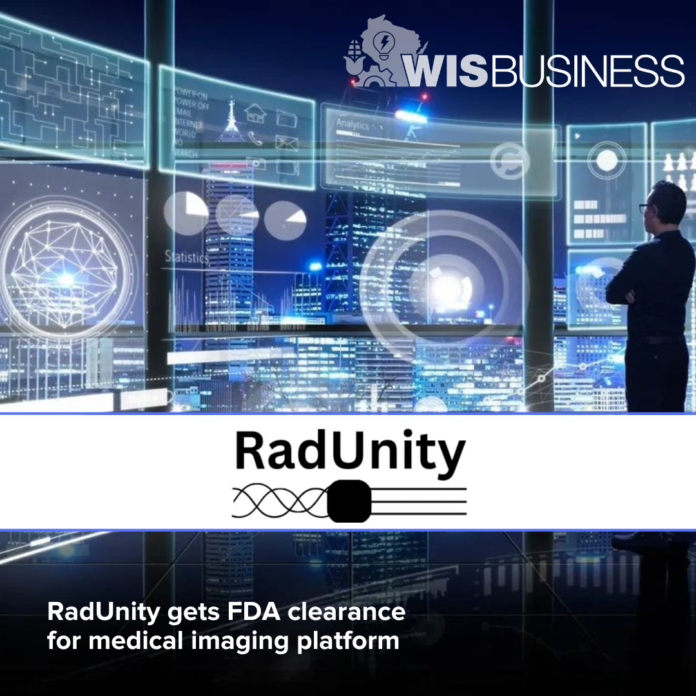Madison-based RadUnity has received FDA clearance for its time-saving medical imaging product, clearing the way for commercial distribution.
The startup company recently announced the federal agency approved its 510(k) Class II Medical Device application, which founder Tim Szczykutowicz says will help secure additional funding and expand the team.
He launched the company in 2023 based on research patented through the Wisconsin Alumni Research Foundation, and holds a position as associate professor of radiology at UW-Madison.
“With this clearance, we’ve made a significant leap toward turning an academic concept into a practical clinical solution … It brings us closer to fulfilling my goal of providing a solution that the community will embrace and use to improve patient care,” Szczykutowicz said in a statement.
The company aims to address the “problem of inconsistency” in medical imaging by centralizing management of certain medical images, before radiologists or AI networks interpret them. Its approach involves ensuring consistent formatting and image processing for these images, such as computed tomography or CT scans.
While CT scans are widely used for diagnosis and pre-surgical assessment, many CT scanners provide varying information for the same procedure, the company says, which can affect patient care. The inconsistency it aims to address is linked to various factors, such as vendors prioritizing “visually pleasing” imagery over uniformity.
RadUnity’s website says its team has identified “numerous sources” of inconsistency at imaging centers, from rural outpatient sites to large academic institutions.
While these differences can pose a problem for the radiologists who interpret CT scan results, they can also throw a wrench in the burgeoning field of AI medical image processing, the company says. AI vendors are challenged with building AI networks that can assess a wide array of varying medical images, rather than a standardized set of results.
RadUnity’s software platform controls the image creation process to provide a consistent “look and feel” for doctors interpreting them, creating continuity in images created for a single patient over time, and between patients. The company says this can cut down on the time radiologists spend assessing results, reduce the implementation time for certain AI medical image interpretation tools, and “eliminate” AI processing errors linked to image compatibility issues.
After creating its tools for CT scans, RadUnity plans to develop “harmonization methods” for magnetic resonance imaging, or MRI scans — another type of widely used medical imaging.
See more at Madison Startups.






